


DISCLAIMER: I haven't played the GOG version a lot (yet) but enough to know that it works. This review is mostly based upon my childhood experiences with the CD version. By now, you probably know that Total Annihilation is considered one of the greatest RTS games ever, but I'd go as far as to say that it is the greatest strategy game of all time, whether turn-based, RTS, 4X, etc. This game has near perfect levels of polish, freedom and fun. One thing about the RTS genre vs other strategy subgenres is that RTS games force the player to think fast. As a result, these sorts of games are typically a true test of skill. The player has complete freedom to build up their forces. Starting with a commander, you can build up your forces as varied as you like. So long as you manage your resources, you'll be all good. TA has simple resources and simple ways of gathering them: you only have to manage your Energy and Metal statistics. However, even this comes down to strategy. For example, building storage facilities gives you access to resource surplus that can be used in emergencies. Unit-wise, there are a couple types: combat, construction, scout, transport. With combat types, you have aircraft, tanks, hovercraft, naval vessels and mechs called K-bots. Construction types can't attack but are the only kind that can build. Scouts typically don't attack but have long-range capability. Transports.. well, that one is pretty self-explanatory. Outside of units, you have all sorts of facilities and defenses you can build. From light laser turrets to nuclear missile launchers; from aircraft repair stations to the epic long-range artillery cannon called "Big Bertha". Also, when it comes to production facilities, you typically can build advanced variants that give you access to more powerful units. Overall, Total Annihilation is a phenomenal RTS that is easy to pick up but difficult to master. It's one of the best tests of skill and strategy out there. Worth it at any price.
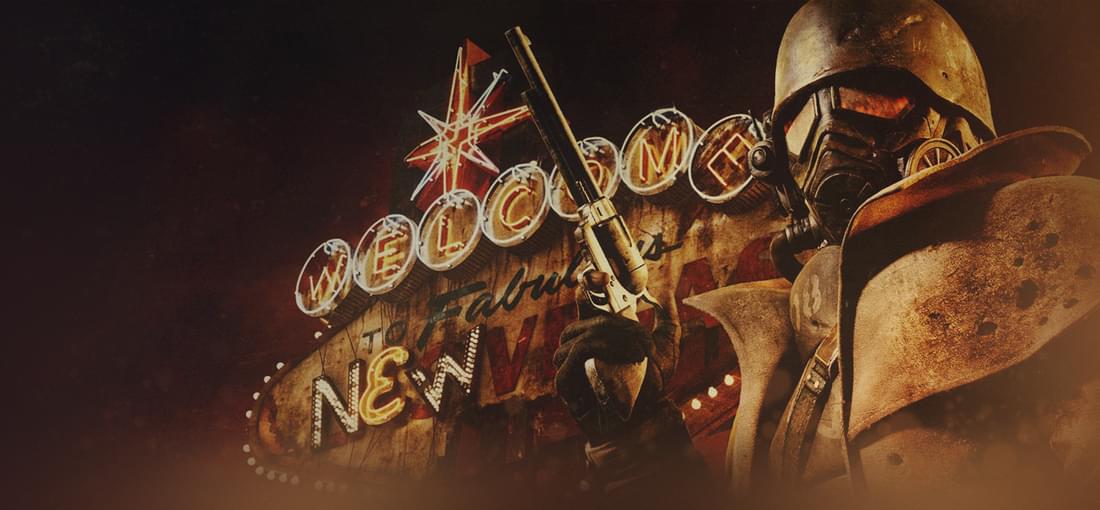
Fallout 2 was my first Fallout game but New Vegas was the game that truly made me fall in love with Fallout. It sparked in me a completely different perception of what games could be. New Vegas takes EVERYTHING that made Fallout 3 such a phenomenal experience and expands upon it. From the improved shooting to the extended crafting and survival mechanics, it brought back a lot of the RPG depth of the classic games but in a way that still felt modern. It gave us a story that, to this day, stands at the top among all of Fallout's fantastic stories. In this game, you can roam, join factions, play casino games, follow the questlines or just do whatever you feel like doing. More than any other Fallout except 76, it truly does allow you to do whatever you feel like doing, but it does so in a way that offers realistic consequences to aid in immersion. Sure, you CAN make a beeline for the New Vegas Strip but you'll miss a lot of great stories and risk an early death. That's just one example, but the choice-and-consequence in this game really makes itself apparent as the main quest develops. You truly do feel like your decisions have meaning, which is something that a lot of RPGs (even among Fallout) don't grasp too well. The review title is has a double meaning. Not only did Obsidian use a lot of their precursor Black Isle's ideas for "Van Buren" (the original Fallout 3 before it was canceled) but New Vegas, like Fallout 3 for Bethesda, was the beginning of mainstream recognition for Obsidian's talents. They had some success with games like Star Wars: Knights of the Old Republic 2 but New Vegas is when they caught the eye of many gamers. This game made me a fan, for sure. They're still a top 5 developer for me! If you've never played Fallout before, I'd recommend Fallout 4 simply because it's more accessible. However, if you loved 4 or 76, definitely go back and play the rest of the games. Be ESPECIALLY sure you play New Vegas, though! It's a masterpiece, full stop!
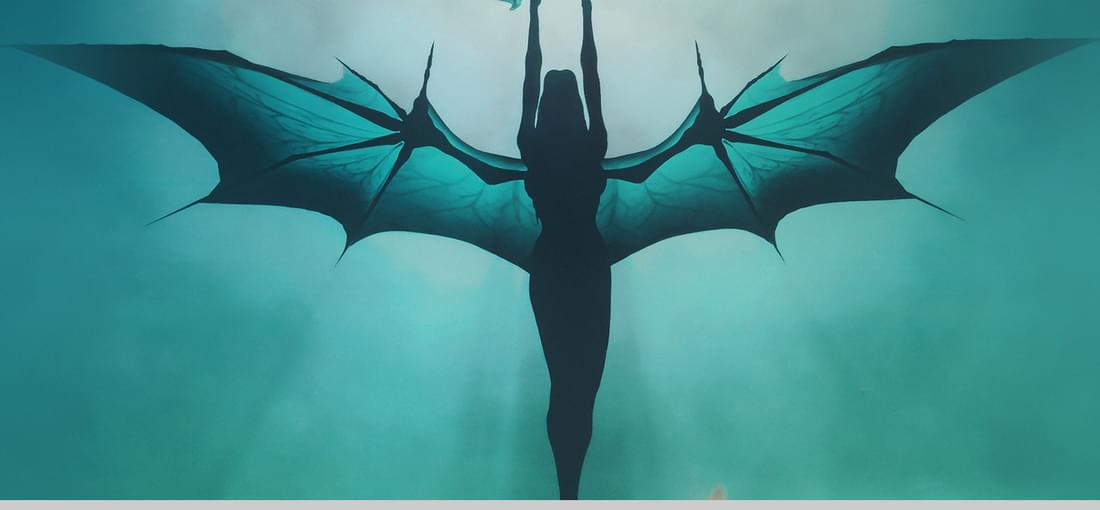
Like Redguard, I've always wanted to play Battlespire since I first became a fan of The Elder Scrolls. I knew that neither game were considered top-tier in this series but I still wanted to give them a try. Redguard has technical issues but is a great game otherwise. On the other hand, Battlespire runs really well but lacks depth. Battlespire is what happens when you take Daggerfall's amazing dungeon crawling and made a whole game around that. Make no mistake, the game does have open level design but this is a dungeon crawler RPG at its heart: the emphasis is on exploring dungeons and building up your character. This is the sort of game that a person might buy if they wanted the dungeon experience present in Daggerfall but without the overwhelmingly large open world and sandbox gameplay. In traditional Bethesda fashion, this game has its fair share of bugs but nothing too crazy. It's an enjoyable game regardless of the bugs. The gameplay is extremely similar to Daggerfall, but obviously, combat saw an overhaul since that's the focus of this one. Swinging a sword or firing a bow feels a lot more in line with 2002's Morrowind (which was a significant improvement over Daggerfall). Story-wise, this game is pretty light but there is one there. The game is more interested in building atmosphere than story. As a result, the dungeons of the Battlespire academy are impeccably creepy and enjoyable to explore. The art style does a great job of capturing the essence of what this game is all about. I haven't finished the game yet and probably won't for some time but I've played it enough to know that if you enjoyed Daggerfall's dungeon crawling and can't get enough of it, this game might be worth the purchase. However, if you're expecting a smaller version of a traditional Elder Scrolls experience, you'd probably be better off just sticking with the main games or maybe the mobile game, The Elder Scrolls: Blades.
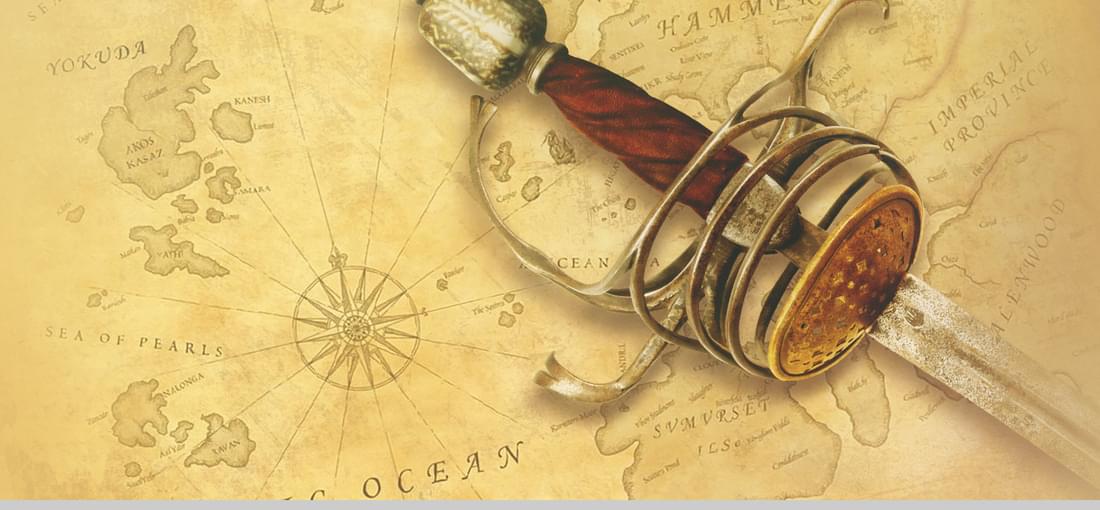
As a fan of the Elder Scrolls games since my childhood, I was really happy to finally be able to have the chance to play the two 90s spinoffs, Redguard and Battlespire. First of all, thanks to GOG and Bethesda for making this happen. However, I can't help but say that I'm a little disappointed. Not because of the game itself, but because of the technical issues. I can't run this game at a decent framerate to save my life. This is fine when I'm just exploring but combat is exceptionally difficult because of this. I've tried various fixes and they've only helped minimally, sadly. I keep hoping that the Daggerfall Unity team will try to port this to Unity as well but I won't hold my breath. Unlike the main games in the series, Redguard is not an RPG. Instead, it's an action-adventure title that could be compared to the Tomb Raider series. However, it's not just a cheap rip-off. It's an Elder Scrolls game: the emphasis is on exploration, lore, interaction with your environment, etc. The combat is great in concept, but in practice, it's difficult to use. Part of this is due to the performance issues but even if I got it running at 30+ FPS, it'd be difficult to manage. It feels like what happens if you try to PC emulate a game from, say, the N64, without a controller. Story- and lore-wise, this game is intriguing because it takes place centuries prior to The Elder Scrolls I: Arena. It's set between the events of The Elder Scrolls Online and Arena during the rise of the Septim Dynasty. Cyrus is a legendary Redguard hero and you get to see him become that hero in this game. Graphically, this game is amazing. For the time, they were incredible but even now, they're still awesome. They're certainly poor by today's standards but they maintain that classic 3D charm that a lot of us GOGers enjoy. In general, if you're a fan of TES, get this game but be warned that it may run like absolute trash. It's a very enjoyable game outside of the performance issues.
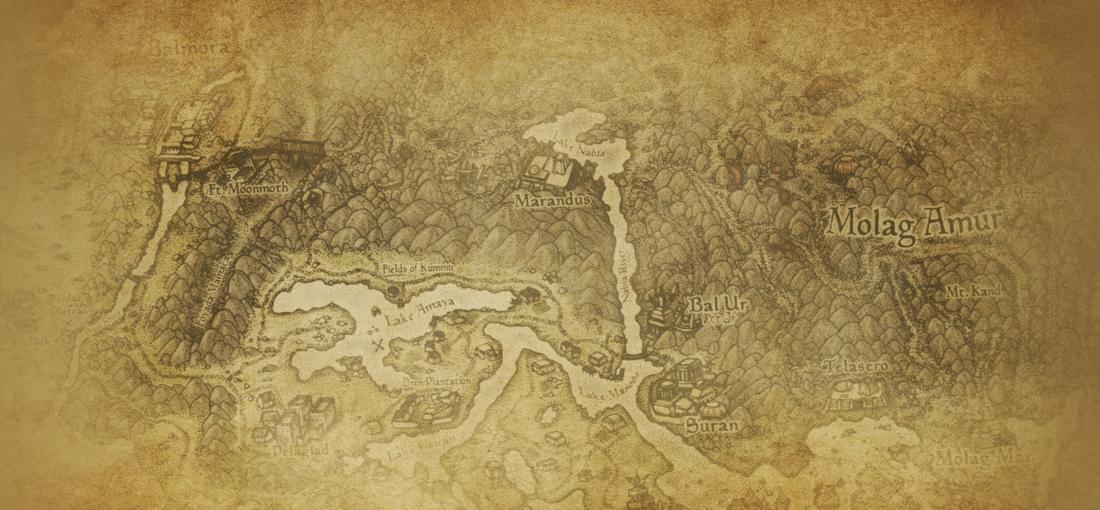
I have yet to buy the game on GOG but I own a physical copy and I have it on Steam. I can tell you right now that Morrowind is absolutely stellar. I consider it to be the greatest sandbox RPG ever made and even though I love the entire series (and Oblivion is my favorite in the series overall), no game has really matched this one's balance of limitless freedom and fantastic story/world building. Sure, Daggerfall had a sandbox world that's larger than the UK but what it lacked was world detail and deep storytelling. Morrowind has a drastically smaller game world but as a result, it's impeccably detailed and the story is perfectly woven with its world. Morrowind is my ideal realization of what a roleplaying game should be about. It's a game that does all that it can to accentuate the fact that you, as the player, are living another life in another world. You're not just playing through an adventure, you're CREATING an adventure... but don't make the mistake of thinking there isn't story, because this game has one of the most complex RPG stories ever made, involving deep series lore, political squabbles, prophecies being fulfilled in unexpected ways and so forth. I can't think of another RPG that makes it quite as rewarding to get to the end of the main quest as Morrowind. You start off as an incredibly weak outlander and eventually end up becoming a veritable godlike legend that leaps across the game world ruining every enemy in your path... and it's all by your own merit, all because of your adventure, rather than just some relatively arbitrary main quest that bumps your power unrealistically. Sure, the game has its quirks, no one can question that. However, the amount of freedom that the game allows, combined with a ridiculously detailed world and truly epic storylines really does make the flaws seem trivial by comparison. If you like RPGs, Morrowind is a must... and even if you can't get past those quirks, mods exist to whittle them down. Grab it now!
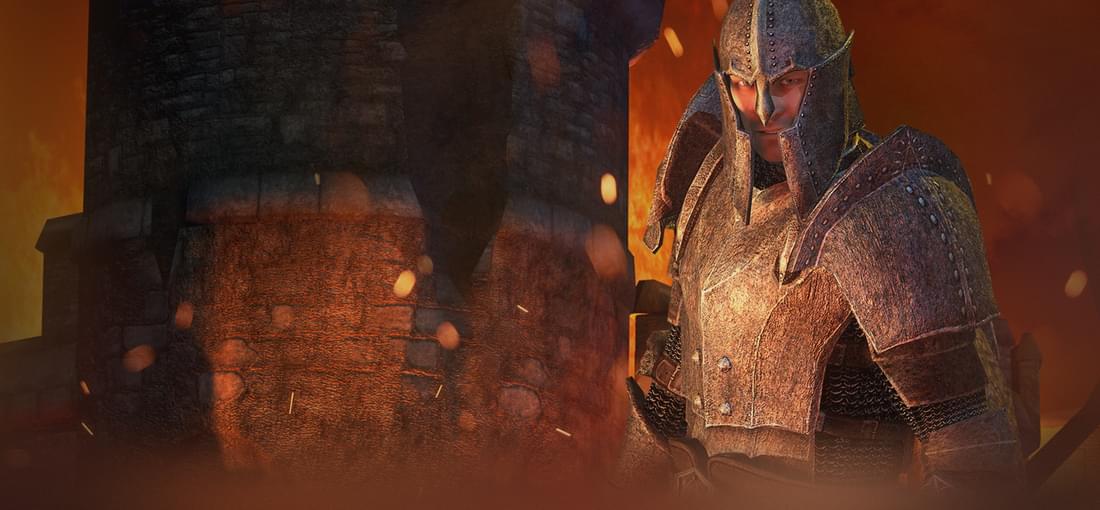
Like Morrowind, I have a physical copy and the game on Steam but I plan to grab it on GOG in the future... because Oblivion is the greatest fantasy RPG ever made. Morrowind may have been a better example of sandbox RPG gameplay but Oblivion takes everything I loved about that game and fine tunes it. Oblivion is still a sprawling, complex sandbox RPG, don't get me wrong, but I particularly like how it streamlined some of the overly complex elements of Morrowind. The most obvious example is the combat. You no longer swing a billion times without hitting your enemy; as long as you're in range, you will do SOME damage, at least. Naturally, you'll get better over time as you improve your appropriate weapon skill(s). That example carries over to the entire game: it really is a bit of a crossroads between old and new RPGs, to be honest. It still has elements to it that make it feel like the way RPGs used to play but it does so in a way that fans of newer RPGs don't feel lost. You don't feel like you're just pumping meaningless numbers in skills. Instead, you get better at skills the more you use them. You have deep customization options, but not overwhelming amounts. Oblivion also has my favorite game world of all time. People complained about it being a bit cliche, in terms of fantasy tropes, but I really don't care. Cyrodiil is an absolutely gorgeous and atmospheric game world with so many interesting locations and awesome culture, being at the center of the Empire. It also doesn't hurt that the expansion, The Shivering Isles, adds the single-most intriguing fantasy world I've ever encountered, bringing back some of that alien atmosphere from Morrowind. Speaking of SI, it is still the greatest game expansion I've ever played. Its story is such an awesome twist on fantasy tropes and the world is amazing in its dichotomous representation of madness. You really need to play Oblivion. It's a must-play, especially if you love RPGs. It really doesn't get better than this.
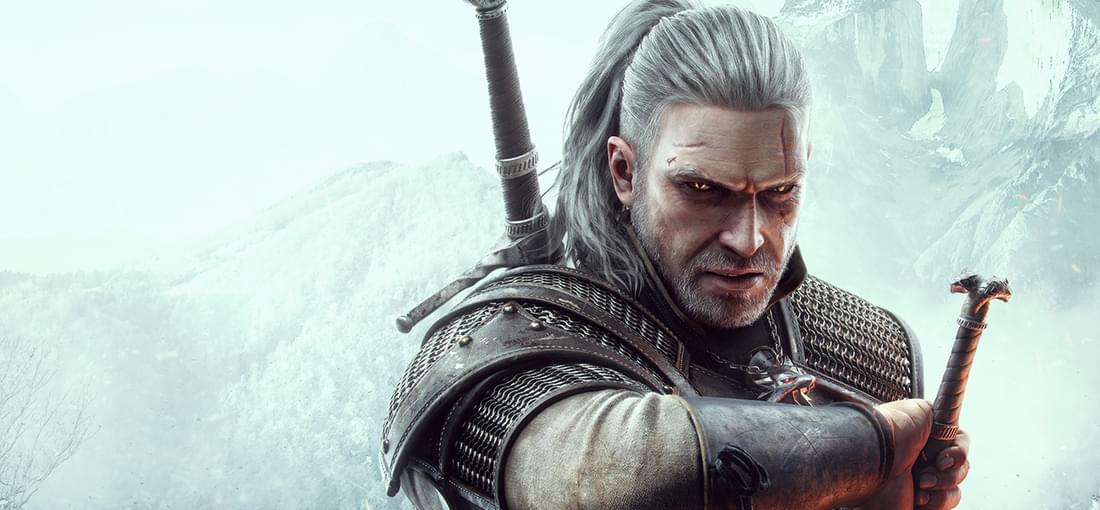
"The Witcher 3 is the best game I've ever played" is a common statement made by people who have played it, citing excellent stories, gameplay, graphics, soundtrack, etc. I never understood it, personally, as, of all the footage I had seen, very little of it looked anywhere near appealing. So when I had the ability to purchase the entire franchise cheap thanks to my GOG welcome sale, I figured I'd give it a go, as I didn't feel like shelling out $50 for The Witcher 3 GOTY Edition on its own when I could get it, along with the enhanced editions of the first and second games, for only $30. Do I feel like I spent my money well? For that price, yes, I do. But if I had spent full price, not really. It could be that I need to play it further than I have to really get what's so "great" about this game. I can honestly admit that it surprised me, I expected much less. But at the same time, I can't help but think that this game is just beyond overrated. Typically, if a game is good, it can capture me pretty much instantaneously (this happened most recently with Fallout 4). The Witcher 3 still hasn't captured me, TRULY captured me. Yes, I've enjoyed my time playing it thus far but the reviews saying it's a "masterpiece of RPG", "best game ever" etc make me wonder if they were written by fanboys of the series or company, because to me, it's really just an above average action-adventure game with an open world. Don't get me wrong, there are some big upsides to this game. From the gorgeous graphics and amazing facial animations to the nice soundtrack, relatively decent combat system and solid story delivery, it is a good experience. While the story itself feels really cheesy (at least in my opinion), CDPR did a good job with delivering that story to the point that it felt actually realistic and emotional. So overall, it's a solid game, enjoyable, but overrated. As I've said many times before, it's an above average open-world action-adventure game. Not a masterpiece RPG. 3.75/5